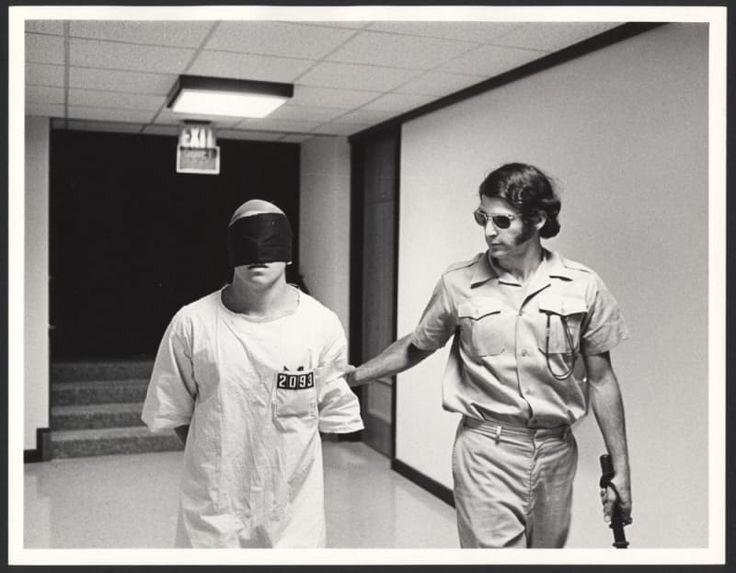The Stanford Experiment; A Study of Human Nature


Is man inherently evil or is it learned behavior?This question has been pondered on for centuries and was even the subject of the book “Lord of the Flies” by William Golding where a group of boys are stranded on an island and left to survive on their own. If you read the book then you know the chaos that ensue.
This question is probably what inspired a social psychology study in which a group of college students became prisoners and guards in a simulated prison environment . This experiment took place at Stanford University in August 1971 and was funded by the US Office of Naval Research. The experiment sought to measure the effect of role playing, social expectations and labeling on behavior over a two week period.
The principal investigator of this experiment was Phillip Zimbardo. An advertisement was put out about “a psychological study of prison life “to which 70 young men responded. 24 applicants judged to be physically and mentally stable were selected. They were to be paid $15 a day and were divided randomly into an equal number of prisoners and guards. The prisoners were “arrested” by actual police and handed over to the experimenters while the guards were instructed not to physically abuse prisoners, they were also provided with mirrored sunglasses to prevent eye contact with the prisoners.
The mock prison for the experiment was situated in the basement of a campus building. Prisoners were made to wear a dress as a uniform and carried a chain padlocked around one ankle.
They were then put in situations that closely resembled life in a real prison. All participants were observed and videotaped. On the second day, the prisoners rebelled and guards worked out a system of rewards and punishments to manage the prisoners. Within four days, four prisoners had become so traumatized they had to be released. As the experiment went on, some of the guards become cruel and the prisoners fell into depression. It got so bad that Zimbardo concluded the experiment only a week after it started.
The Stanford Experiment came under attack for its methods and Zimbardo admitted that during the course of the experiment he sometimes felt more like a prison superintendent than a research psychologist. Even though the experiment didn’t go as planned, it became popular outside of academic circles. Some argued that the experiment attracted people who were authoritarian by nature.
The BBC staged their own prison study decades later called “The Experiment” in 2002. Their mock prisoners weren’t as submissive as Zimbardo’s and the British experimenters concluded that the reason nthe Stanford Experiment went off the rails, was because Zimbardo himself imposed tyranny.
The Stanford Experiment is the inspiration for movies like Das Experiment (2001) a German film remade in the United States titled “The Experiment” in 2010. Another film, titled “The Stanford Experiment” was released in 2015, it closely followed actual events and Phillip Zimbardo actively participated in its filming.
